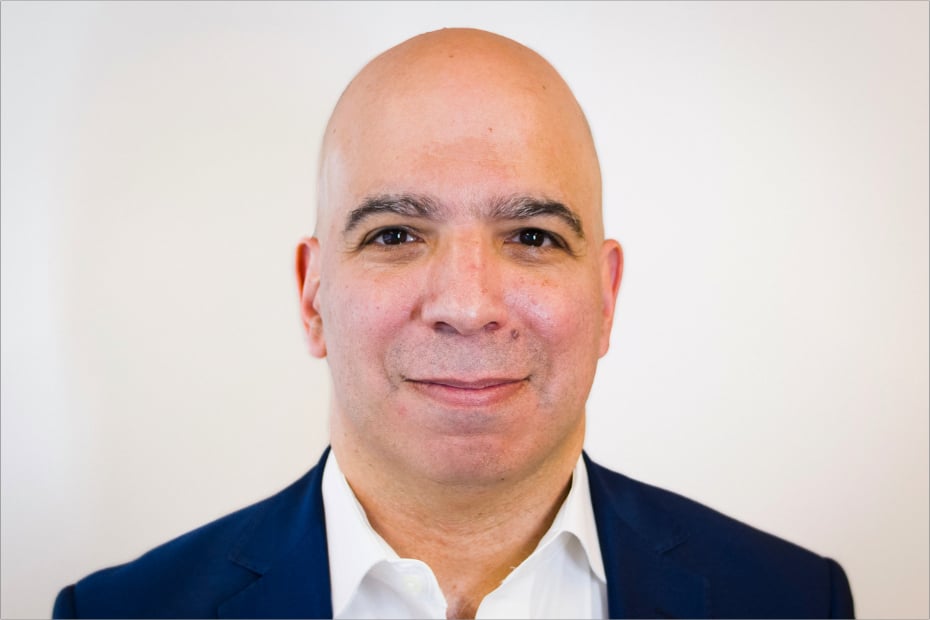
Image: Attached
Roger Martella, Group Vice President, Chief Sustainability Officer for GE and GE Bellnova, and Global Head of Engagement, Government Affairs and Policy for GE Bellnova, is a strong advocate for climate action.
in a recent conversation gulf business, Mr. Martella shared how the UAE is leading by example in climate change innovation and investment. He also spoke about GE's role in supporting decarbonization and electrification, and why public-private sector collaboration is essential to advancing climate change.
Below are excerpts from the interview. with Roger Martella
You called this the “UAE effect” and expressed your admiration for the UAE's efforts to drive transformative climate action. Please tell me more about that.
The world's attention is focused on the UAE, primarily because the country will host the 2023 United Nations Climate Change Conference (COP28) later this year. But there's more to it than that. The UAE is rapidly emerging as a world-leading influencer on climate change, decarbonization and energy transition. Historically, the US and the EU have led this space and will continue to do so, but I see the UAE rising to that level, especially in the Middle East and Africa.
As we work towards COP28 and its ambitious net zero goals, the actions of this country and its leaders herald a new direction that will have a lasting impact on the world, similar to the Paris Agreement since 2015. It is.
I call this the “UAE effect.” This is a phenomenon where the country is demonstrating leadership, investment and initiative in driving decarbonization and innovation. The UAE aims to host the most important COP since Paris, and momentum is building to move from “policy” discussions to “business” action. We are seeing a reorientation to focus on outcomes and results. Redefining climate action as an opportunity rather than a risk. Reorienting public-private partnerships to achieve results in the short and long term.
Simply put, the UAE is the first country to run COPs like a business, which means operational commitments that lead to measurable and accountable metrics, key performance indicators and goals.
The UAE sees decarbonization and energy transition as a competitive advantage. It's an opportunity for people, industry and the economy. Technology and innovation drive this vision, supported by the investments that enable it to become a reality.
I respect the UAE's commitment to youth and diversity. When you visit schools, universities, and organizations, you see this reflected. We see many women in leadership positions in both the public and private sectors, and even at COP28. The UAE attracts the best talent from around the world. So I am grateful that this country promotes a culture of excellence in all fields.

How is GE supporting the UAE in its focus on decarbonization and energy transition?
One of the characteristics of GE and the UAE is that they are closely aligned in how they approach these issues. Both the country's leadership and GE believe that innovation and technology are needed to solve climate change, enable decarbonization and drive the energy transition. The UAE is investing in the necessary technological innovations and we are a world leader in energy equipment innovation. It also contributes to the production of his 30% of the world's energy in 170 countries.
We have the most diverse portfolio of energy production equipment, from renewable energy to the world's most efficient gas turbines, physical and digital grid solutions, as well as small modular reactors, hydrogen as a fuel It also features breakthrough technologies such as carbon capture. And these are the technologies we need to innovate and adopt to solve climate change. We therefore have the opportunity to strengthen our great partnership with the UAE. It’s not just about bringing technology to the UAE. We also hope to cooperate in technology verification and the development of groundbreaking technology.
Ultimately, we want to help the UAE build its supply chain so that its technology can be manufactured within the UAE and exported to other countries in the region. This has benefits from both a workforce and economic perspective. Decarbonization will also progress.
We also engage regularly with the leaders of the UAE and the COP28 Presidency on a daily basis, providing support and expertise in these areas.
Do you think we are reaching that goal globally in terms of regulation?
We are certainly in a time of transformation where things are moving in a more powerful direction. The momentum has improved considerably. Historically, the approach to climate change regulation has been a kind of “stick” or authoritative approach. And some of it still remains. The Inflation Reduction Act (IRA), which went into effect in the United States last year, was the first climate change law in the United States. It used a “carrot” approach and encouraged companies to do what they do best: innovate and deploy technology. In the US, the benefits are starting to pay out very quickly within his year.
At GE, policies related to this legislation have announced new manufacturing for clean energy technologies that will involve thousands of jobs. Businesses like certainty, so more countries are adopting these incentive-based policies, which are attractive to businesses. With certainty, we can go and build our workforce, factories and supply chains elsewhere, and more people around the world can be motivated to invest in clean energy supply chains. can.
On a global scale, given the urgency of decarbonisation, do you think we are moving in the right direction?
I've been in this field throughout my career, and I'm one of those people who's been critical and often frustrated. Because we've talked a lot about this issue (for decades) and we haven't followed through. Please take sufficient action.
However, I must commend the efforts of the EU and the US towards decarbonisation. Optimistically speaking, the last 18 months have given me hope and excitement. Although still in the early stages, it feels like decarbonization efforts are gaining momentum. In fact, we believe the UAE will significantly accelerate the transition this year. I also believe that it is the next generation that will accelerate our pace. What I want to do is make sure that GE and partners like the UAE support these future leaders. We hope that by building momentum for action and setting the right policies, incentives and frameworks, they will be well prepared for the task. Although it will take decades of implementation to paint a realistic picture, we are confident that we will continue to advance the breakthrough technologies needed to accelerate the transition to a sustainable future. I am.
Where (in terms of sectors) will it be introduced earliest?
The energy sector will see the biggest changes because it is a major contributor to greenhouse gases and the least difficult to decarbonize. The energy sector will pave the way to help other sectors decarbonise. These sectors will rely on electrification to reduce emissions.
Next comes the transportation sector, where we will see the impact particularly in areas such as passenger cars and light trucks. The aviation industry, which has its own net-zero targets, has also been affected, with increased focus on sustainable aviation fuels. There is an increasing emphasis on high-emitting industrial sectors such as construction and other industrial applications, and here too electrification is driving change.
At the grassroots level, how people approach energy efficiency and carbon emissions is also an important factor, including their lifestyles and the way they commute. There are many opportunities that can be leveraged to accelerate decarbonization, including the design of residential and office buildings and transportation infrastructure. A lot of that is already happening, but I think it will move forward in a more coordinated way in the near future.
Please tell us about GE's electrification efforts.
There are 700 million people in the world who do not have access to reliable, affordable and sustainable electricity.
As a 130-year-old company in this field, we strongly believe that we must improve the quality of life for everyone around the world. Everyone has the right to live a rich and comfortable life. Therefore, while we aim to decarbonize, we also want to ensure that people in communities around the world have better access to electricity. GE is as committed to electrification as it is to decarbonization. These are the pillars of a sustainable world.

